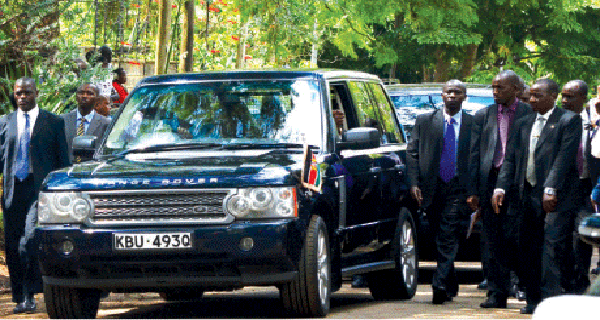×
The Standard e-Paper
Kenya’s Boldest Voice
 |
| President Uhuru is surrounded by men charged with protecting him and his family |
By HUDSON GUMBIHI
With his dark suit concealing the obvious bulge of the pistol, the occasional pitch-black sunglasses covering his darting eyes and the don’t-mess-with-me stern face, Peter* is every inch the lethal bodyguard. His presence is an apparent reassurance that no harm can befall the boss, a prominent Senator.